Facing a war of attrition – what are the next steps for President Zelensky?
The president has risen magnificently to the challenge of leading a nation fighting against invasion but the strain of such an effort would be felt by any administration, writes Mary Dejevsky

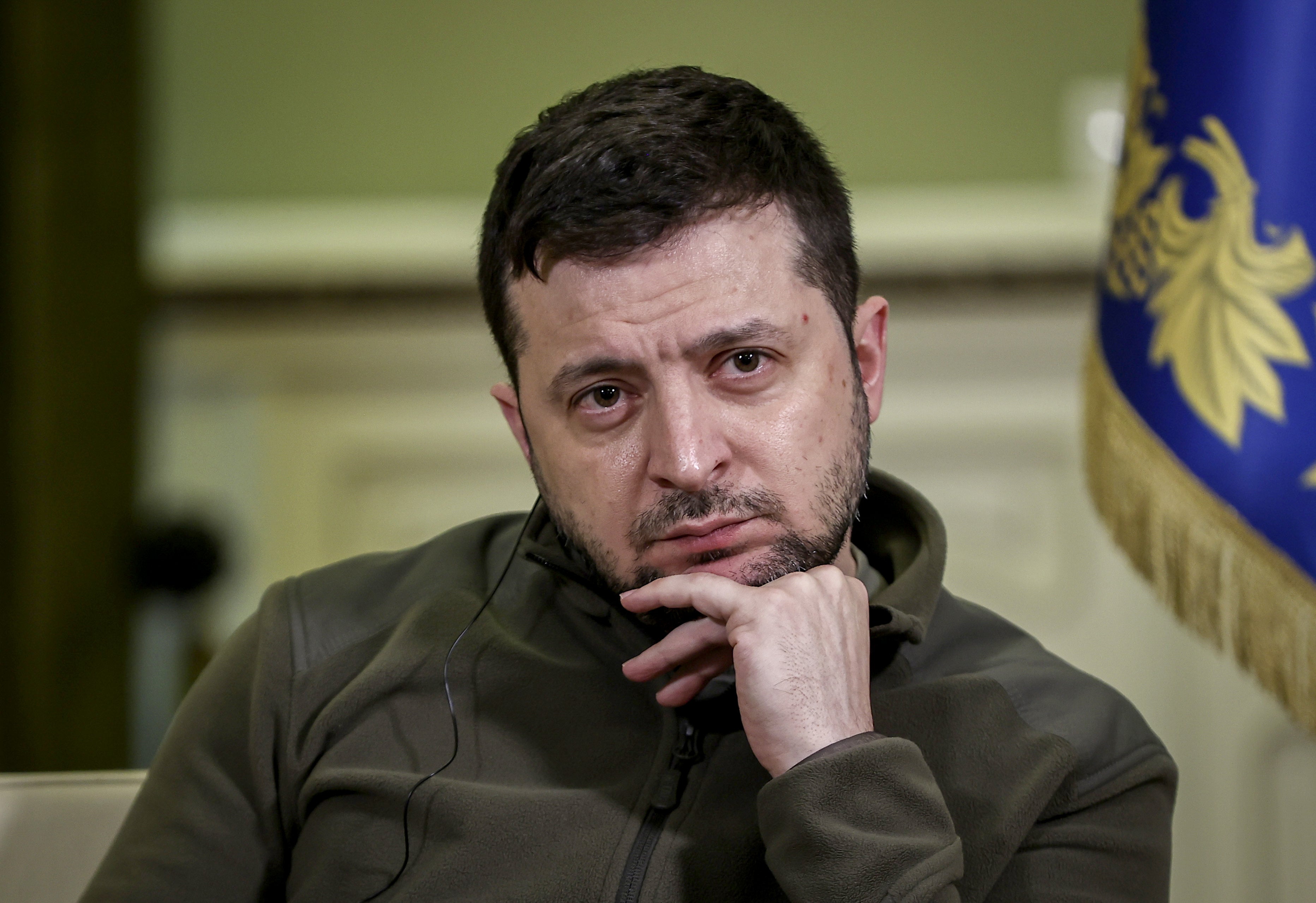
However the war in Ukraine ends – and some day it surely must – one man will go down as the standard-bearer for his nation following the Russian invasion, and in the longer sweep of history, perhaps, as the leader who forged the modern identity of Ukraine.
As a novice president halfway through his first term, Volodymyr Zelensky rose magnificently to the challenge of the greatest emergency any country can face, and it is largely thanks to his inspirational example that, five months after the Russians launched their multi-pronged assault, Ukraine is fighting on.
With his trademark khaki T-shirt and light stubble, his nightly television broadcasts and his Zoom meetings around the world, Zelensky has become a familiar figure far beyond Ukraine’s national borders, and has imprinted his country on to every international map. Alongside his almost incomprehensible personal courage, Zelensky has also shown an ability – beyond his natural gifts as an actor – to reflect the many shades of the national mood: from good cheer to abject grief; from burning anger to grim determination. By now, the toll of the conflict is etched in the lines on his forehead, transforming him from a youthful-looking television performer into a seasoned war leader in less than half a year.
How long, it is not unreasonable to ask, is it possible for one man to keep this up? And even if he is equal to the task for the duration, what of those around him? As the list of the killed and injured grows ever longer, is there a limit to the country’s endurance? Might the leader feel a responsibility to call a halt, even if his people profess their determination – as they do by a huge majority in most opinion polls – to fight on? Or might it be the other way round: that their resilience starts to fail before his does?
As of now, Zelensky appears to be taking his cue from the people, with the sentiment being to fight on, making no territorial concessions. Having fought thus far, there is even a strand of opinion that wants not just to return to the borders as they were before the invasion on 24 February, but to recapture the whole of the Donbas region and the Crimea – an objective that even Ukraine’s most ardent supporters outside the country should regard as unrealistic.
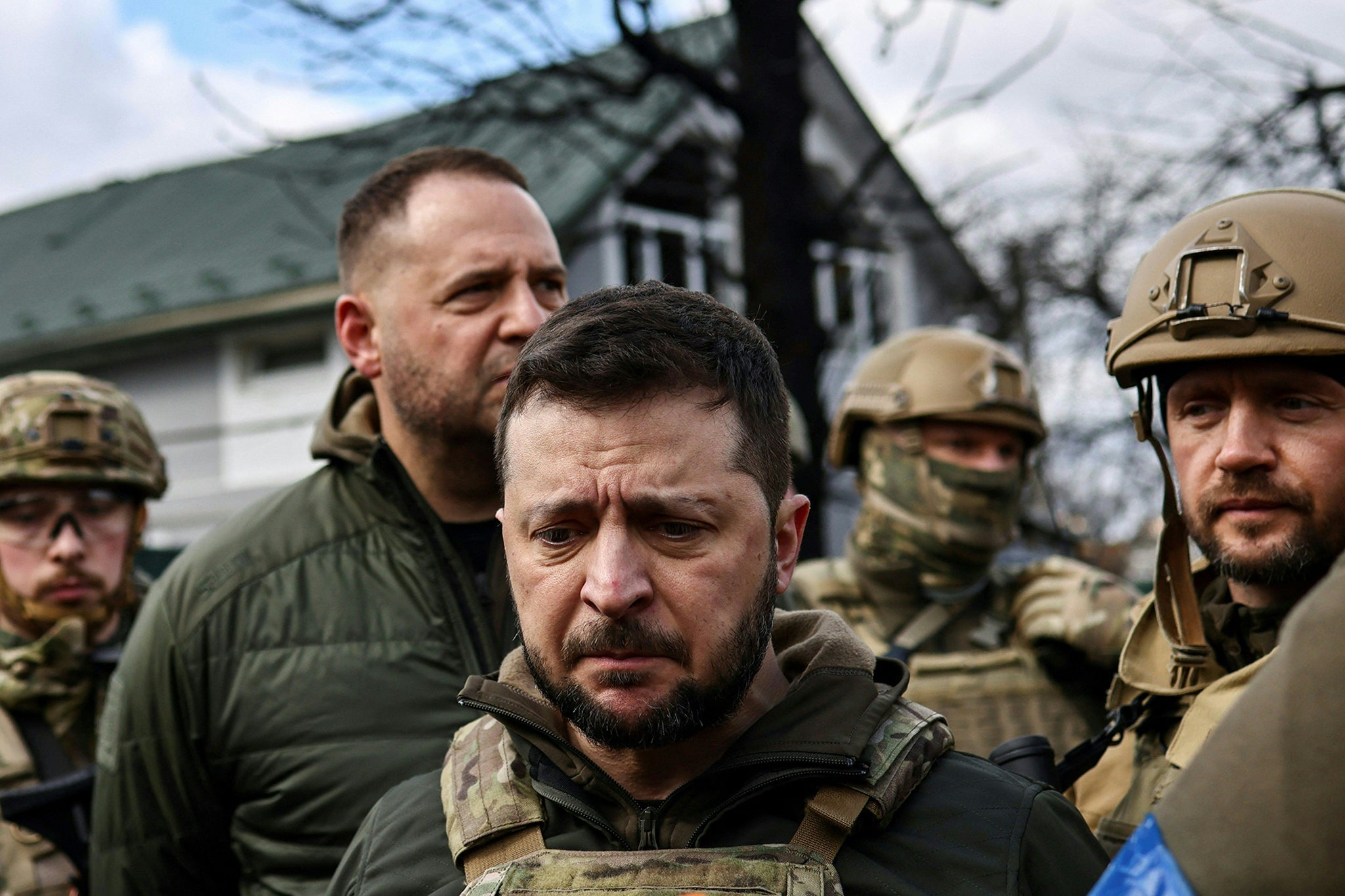
All or nothing, however, is not how wars of attrition generally play out. Weakness accumulates by stages, with a hairline crack here, a wider crack there. And it is possible to trace, in just the past few weeks, how the first visible cracks have emerged in what has hitherto been a rock-solid front on the part of the administration in Kyiv. Zelensky closed them up again quickly and adroitly, but there was suddenly a glimpse of vulnerability, giving rise to the question of whether these were short-lived exceptions or part of a bigger and more damaging trend.
The latest, and most dramatic, development came on Sunday 17 July, when Zelensky removed two people in his immediate circle from key positions. One was Ivan Bakanov, the head of Ukraine’s security service, the SBU. He had been a friend of the president since childhood, had coordinated his election campaign in 2019, and was one of Zelensky’s first appointments after he took office in June that year. The other was the prosecutor general, Iryna Venediktova, who had been responsible, among many other things, for leading investigations into war crimes. It hardly needs to be said that these are key positions in any administration at any time, but many times more so when a country is at war.
It was subsequently clarified that the two had been suspended rather than fired, and that each had been replaced almost immediately – in an acting, rather than permanent, capacity – by their most senior deputy: Bakanov by Vasyl Maliuk, who had overseen the SBU’s anti-corruption and organised crime unit, and Venediktova by Oleksiy Symonenko. It was also explained that the reason they had been removed was largely technical, with the purpose – according to one of Zelensky’s (many) advisers – having been to “prevent the potential influence of these two officials on criminal proceedings which are being investigated ...”.
In other words, it could be said – placing the best possible gloss on it – that they were being stood down temporarily to avoid any appearance of a conflict of interests. The nature of the criminal proceedings in question, however, offered no consolation to anyone. They were, the same adviser said, “in relation to SBU employees who are suspected of cooperation with the aggressor country” – ie Russia.
The specific case is that of Oleh Kulinich, a senior SBU official responsible for tracking what was going on in (Russian-occupied) Crimea. Appointed in 2020, he resigned in February after the Russian invasion, and was arrested for high treason shortly before the announcement that Bakanov and Venediktova had been suspended. Zelensky told Ukrainians in one of his nightly broadcasts that “everyone who together with him was part of a criminal group that worked in the interests of the Russian Federation will also be held accountable”, noting that the accusation concerned “the transfer of secret information to the enemy and other facts of cooperation with the Russian special services”.
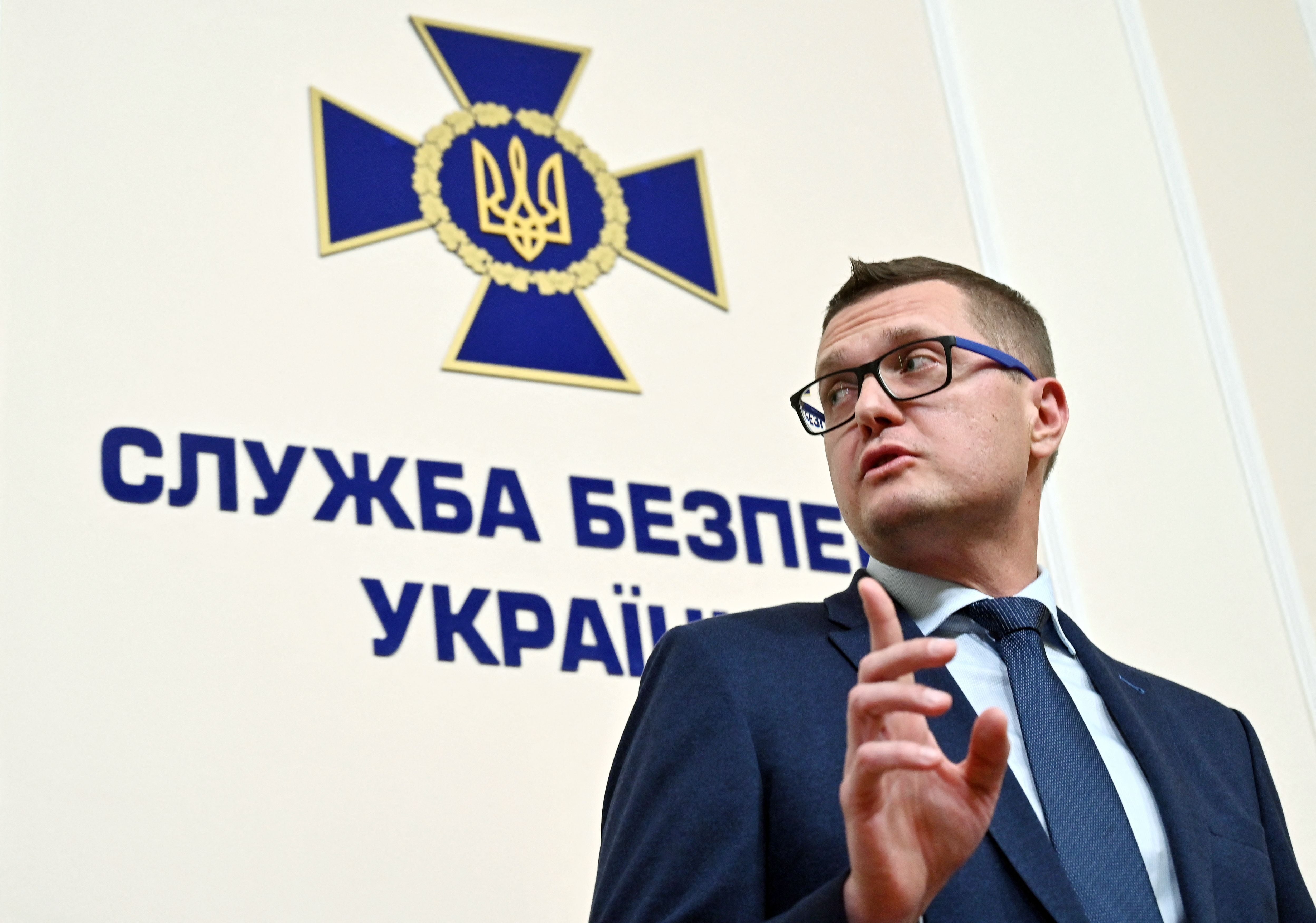
The wider problem is twofold. First, that while this particular official may be exceptional in his seniority, even sensitive departments are suspected of sheltering collaborators. Zelensky has alleged that “more than 60 employees of the prosecutor’s office and the SBU have remained in occupied territory and work against our state” – something that he said “raised very serious questions” about the leaders of their departments. In a post on the Telegram social media service, he said that 651 cases of alleged treason were under investigation.
The second part of the problem is that, while the suspension of Bakanov and Venediktova may have a specific and limited explanation, the impression of cast-iron unity within Zelensky’s administration is now inevitably less convincing than it once was.
It should be emphasised that there is no suggestion that either Bakanov or Venediktova is under suspicion of collaborating with Russia; the claims against them are rather that they failed to act against those in their respective departments who might have done so. But the damage to Ukraine’s interests, if this many state employees are going along with the occupying power in those areas of the country that are already occupied, or threatened with occupation, can hardly be exaggerated.
In highlighting the allegations of collaboration, it appears that Zelensky was trying to close a critical gap in his country’s non-military defences. Bakanov’s departure, for instance, did not come completely out of the blue. It followed several weeks of intermittent and anonymous briefing against him, and – that staple of political troubles – a specific denial from Zelensky, less than three weeks before, that his job was under threat. “If I had wanted to fire him, I would have already fired him,” he told a press briefing on 27 June.
Five weeks after the Russian invasion, Zelensky had announced the dismissal of the SBU’s chief in Kherson. It was the first Ukrainian city to fall to Russian forces, and did so with a speed that led to accusations of a traitor in the ranks. At the time, Zelensky said he had no time to deal with all the traitors, but that they would all be punished in due course. The time for a reckoning, including a general tightening of discipline, may now have begun.
In the month of July alone, Zelensky has also dismissed nearly a dozen ambassadors, including Ukraine’s envoys in Germany, Norway and India, in what was in most intances described as routine rotation, though it was hard not to see the change of ambassadors in Germany and India as possibly reflecting a failure to promote Ukraine’s message to sufficient effect.
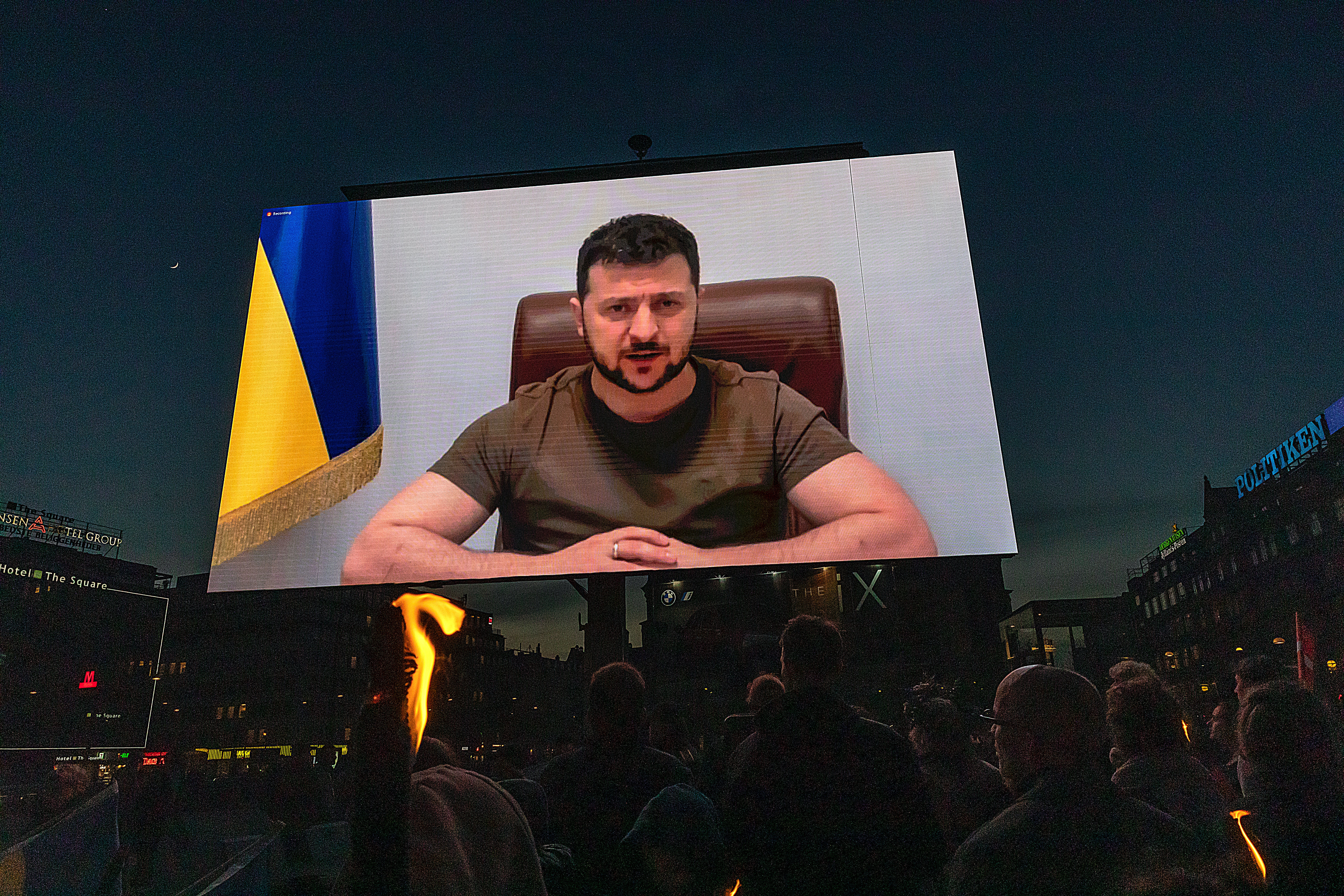
There were also signs of strain between the president and the head of Ukraine’s armed forces, Valeriy Zaluzhny, over an order restricting the movement of those men subject to call-up – which is most Ukrainian men of working age. Zelensky complained publicly that the order had been issued without consulting him and had caused confusion on the ground. He told Ukrainians in his nightly broadcast that he was trying to sort it out. Zelensky later said there had been no “misunderstandings” with Zaluzhny: “Our country is at war and we must work as a team.”
There was also a curious event at the very end of May, when Ukraine’s human rights ombudsman, Lyudmyla Denisova, was removed from her post after a parliamentary vote of no confidence. Not only was the move itself without precedent, but it drew opposition from the parties of two of the Ukrainian parliament’s “big beasts”: former president Petro Poroshenko, and former opposition leader Yulia Tymoshenko, both of whom had hitherto maintained parliamentary unity behind Zelensky and his Servant of the People Party. Denisova’s removal followed accusations that she had failed in her duty to oversee the provision of humanitarian corridors in war zones, failed to prevent the abduction of Ukrainians from occupied territory to Russia, and not done enough to protect and exchange prisoners of war.
All in all, the past month has provided the first real evidence of divisions starting to emerge in Zelensky’s team – a team that showed remarkable cohesion in the first months after the start of the war – and hinted at the president’s potential vulnerability, not least from Ukrainians collaborating with Russia.
There are several reasons, however, why the actual situation could be more complicated than this, and why Zelensky has so far managed to escape real damage – to either his leadership or his reputation – and may continue to do so.
While the sackings, suspensions, resignations and arrests are undoubtedly real, as with moves by any political leader there is always the question of whether charges of incompetence mask more mundane personal and political disagreements.
On the other hand, so long as Zelensky and his crack PR operation continue on the assured course they have followed since the first Russian onslaught, such questions may not matter. Zelensky may have reduced his expertly tailored addresses to foreign parliaments and other influential groups – in part because he could simply be running out of audiences. But he continues to speak to foreign leaders – including, of course, Boris Johnson – and to take part in international fundraising and conference calls with Western representatives.
He continues his nightly broadcasts to Ukrainians, giving updates on the conflict and appealing for support. With all Ukrainian media channels now united and placed on a war footing, the broadcasts remain an ideal tool for the former actor and consummate communicator to get his message across. That applies even when the message is not what Ukrainians would like to hear. Zelensky maintains an air of frankness, of levelling with his people, even when the news is bad.
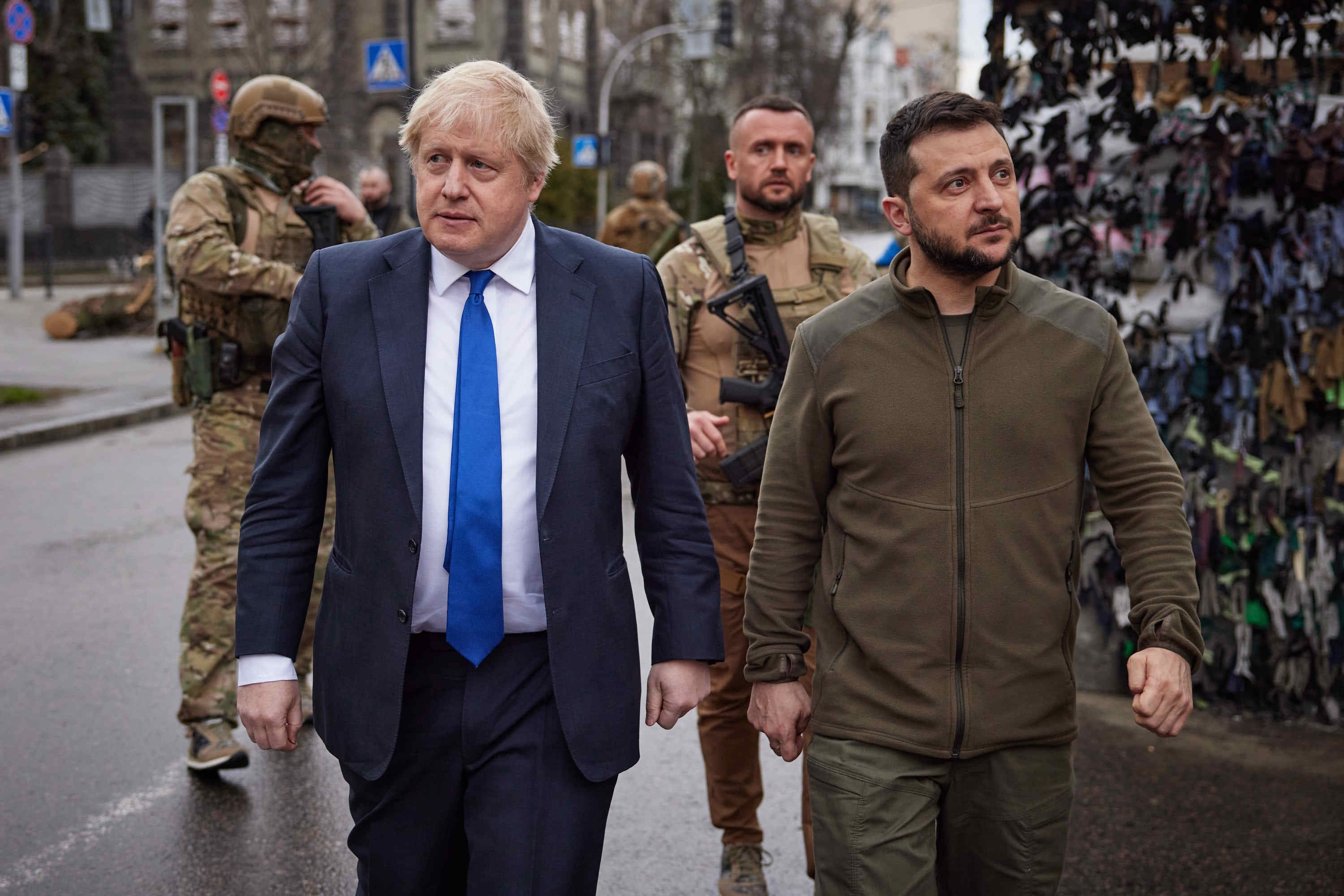
He also holds fairly regular briefings for journalists and others, which included one in a Kyiv metro station with the trains still running through. He receives foreign leaders – occasionally, as with Boris Johnson, taking a stroll through the streets of the capital. He awards medals to servicemen, visits the injured in hospital, and from time to time visits the front line.
His every appearance is aimed, on one hand, at projecting calm leadership; on the other, at reflecting the immediate and ever-changing concerns of the people. Thus it was he, as president, who first gave the news that as many as 50 to 100 Ukrainians were being killed every day on the eastern front, with as many as 500 being injured. This was in late May, and it was the first time Ukraine had released any figures for its own casualties.
Zelensky assumed the same air of frankness when he warned about the threat from collaborators on the night after he had removed – or suspended – the head of the secret service and the chief prosecutor from their jobs. He was able to present what was, in fact, some of the most dramatic news to have come out of the president’s office since the start of the war as something that was entirely reasonable and for everyone’s good. Even the term he used – it could, he said, “truly” be seen as a programme of “self-purification” – went almost unremarked upon, even though a different but equally accurate translation into English might have called it a “purge”.
The Ukrainian president’s combination of eloquence and glasnost (transparency) has so far kept Ukrainians on his side, with his poll ratings remaining since the outbreak of war upwards of 90 per cent. He has also given national leaders – indeed almost any leaders – of the future a masterclass in wartime communication in the modern world that is sure to outlive him. With a team – dubbed the PR Army – ready to make Ukraine’s case at any hour of the day, to any part of the world, in any medium, Zelensky’s Ukraine has set a new standard for waging a war through information, defeating Russia’s clumsy and old-fashioned propaganda machine hands down.
Some insight into Zelensky’s success, in particular how his facility with words and his gifts as a performer developed, is given by Serhii Rudenko, a Ukrainian political commentator based in the western city of Lviv, in the first biography of Ukraine’s president to appear in English.* Rudenko’s book, structured not in chapters but as 39 short “episodes” from the president’s life, leaves a scattering of impressions rather than offering a chronological account. It also presumes a more intimate acquaintance with the complexities of Ukrainian politics – something that I, and most outsiders, simply do not have.
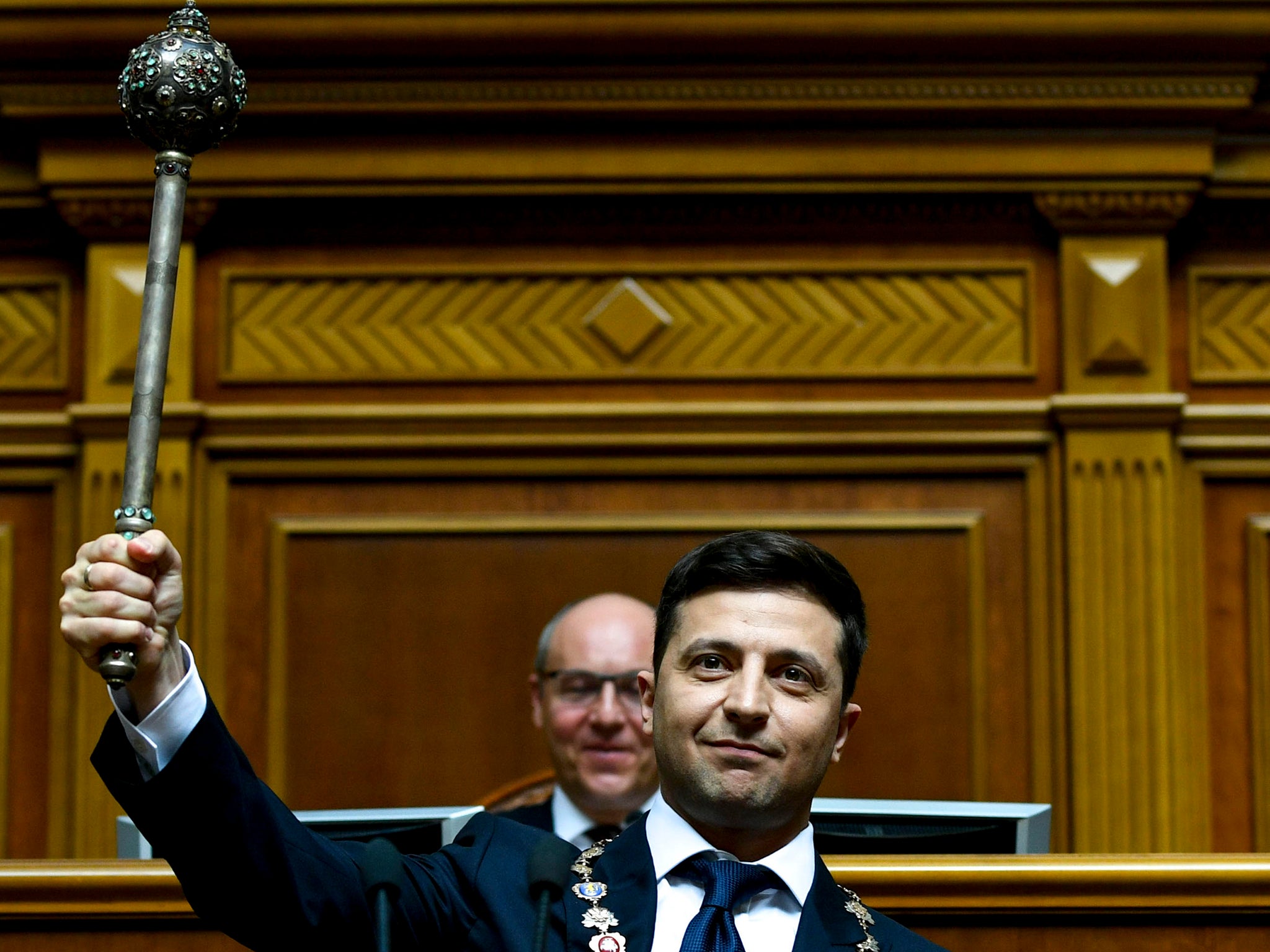
But several points might be worth noting that cast light on Zelensky’s rise to national and international prominence, the strengths of his character (and some of the weaknesses), and above all, the uniqueness of the times he has lived through.
Zelensky grew up in a non-practising Jewish family in the largely Russian-speaking town of Kryvyi Rih in central Ukraine. He excelled early in the sort of televised song and dance contests that were popular in the Soviet Union and survived its collapse. He finished regularly in the top three, eventually winning outright, and the Soviet legacy gave the young Zelensky a quasi-international platform to perform on.
In a detail the biographer almost passes over, which might help to explain some of the bewilderment on the part of older Russians now about what has become of Ukraine, Rudenko relates how, as a precocious teenager and then as a young man, Zelensky moved freely between the new countries of Russia and the independent Ukraine, almost as though they were still the same country. He spent some time living, studying and performing in Moscow. Now 44, Zelensky was 13 when the Soviet Union disintegrated, but the reality for Russians and Ukrainians took many years to change.
What did change were the creative and commercial opportunities that were progressively layered on top of what remained of Soviet institutions. Zelensky emerged not only as a highly successful television performer, but as a shrewd and successful leader of teams, with a good head for money – and, thanks to his law degree, a sharp sense of his rights. Nor did he ever lose the discipline that had brought him such success as a young performer. All of these qualities can be observed today, and help to explain his resilience.
It is when politics enters the equation – as it inevitably does when Zelensky settles permanently in a now more self-consciously independent Ukraine and sets up his own production company – that Rudenko becomes more equivocal in his judgements. And his misgivings, too, transfer to the present time.
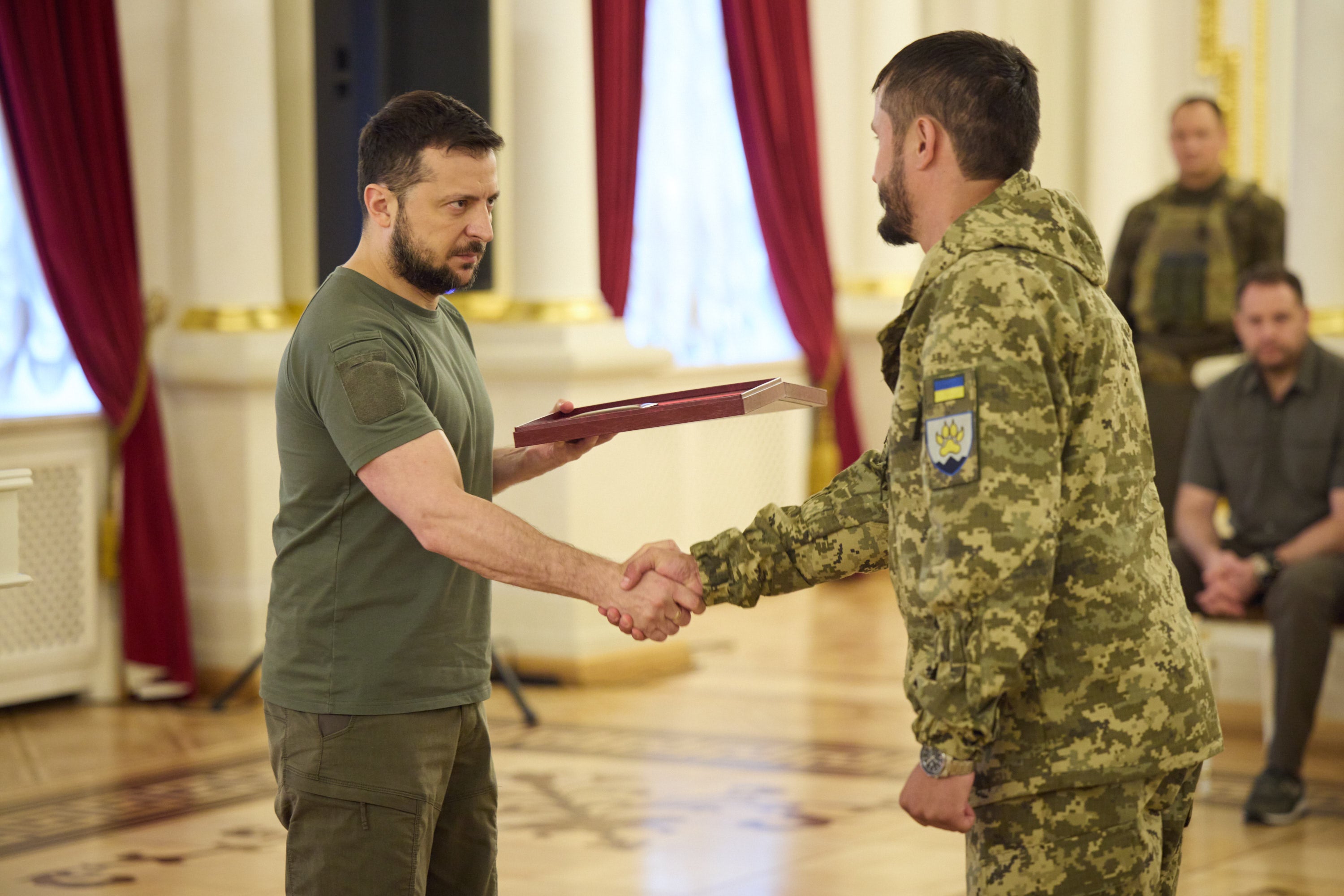
One criticism frequently heard of Zelensky as he was building his team, after an election victory that had shaken Ukraine’s existing elite, was the extent to which he drew on friends from the past. Bakanov – whose recent removal made headlines – was one of these: a friend from kindergarten days, whose qualifications for the role were not immediately apparent. Too many friends of the president, some said, idled their time away on the public purse and failed to bring about the change Zelensky had promised.
But the opposite argument can be made, too. Who was a political neophyte to appoint if he were to honour his election pledge to break with those entrenched in power? Is not loyalty a positive, rather than a negative – and anyway, hasn’t Zelensky’s team remained remarkably stable, crossing the threshold from peace to war with almost no losses along the way? And does Bakanov’s removal/suspension not demonstrate that Zelensky can act as decisively against his friends as against his enemies?
These are extreme times in Ukraine; it would hardly be surprising if there were the beginnings of dissent in high places, and if the president – any president – were not starting to feel the strain. For the moment, Zelensky’s chief Western backers and Ukrainian opinion appear to be united in arguing that the fight must go on. But as the losses mount, that could change.
In the end, the result of the war will determine how Zelensky is viewed by history: as the hero who saved his nation, or the tragic leader who misjudged his own and his country’s strength. Neither verdict, however, will be complete without the recognition of Zelensky as a brave showman-leader who demonstrated how to use 21st-century communications to fight a 20th-century war.
Nor will it be complete without an acknowledgement that, yes, one individual really can change history by taking a stand and inspiring others to follow – whatever the eventual outcome.
*‘Zelensky. A Biography’ by Serhii Rudenko, Polity Books, published July 2022
Join our commenting forum
Join thought-provoking conversations, follow other Independent readers and see their replies
Comments
Bookmark popover
Removed from bookmarks